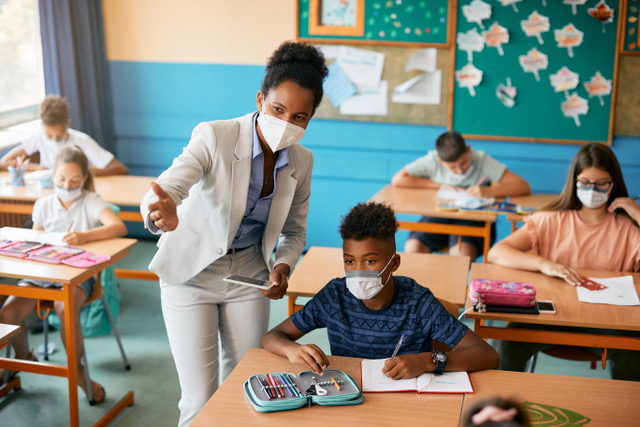
Opinion: How You Can Help Your Kid Readjust to In-Person Schooling
Dr. Lenore Tate | Special to California Black Media Partners
Our children are our most precious resource. They hold in their hands the future of our community, our state, and our nation. Likewise, we must hold them, too, under our protective guidance as we shape them into responsible and caring adults.
Now, that most of our students have returned to school after an unusual, unpredictable and challenging 18 months due to COVID-19, many of our children are experiencing emotional upheavals due to – or exacerbated by — the pandemic. It is going to take some work to get children used to the stability, structure and predictability after more than a year of remote learning, disrupted schedules, isolation, little-to-no contact with peers and missed milestones.
Some of our children and their families have experienced food insecurity, income losses, illness and death due to COVID or related traumas. These factors and many more have contributed to rising rates of depression, anxiety, hopelessness, decreased motivation, irritability, and an overall loss of learning.
As the school year begins, it is important to remember that each child is unique, and each one will experience their transition back to school differently. According to the American Psychological Association (2021), 81 % of Gen Z teens (those between the ages of 13-17) have experienced intense stress associated with academic learning due to the COVID-19 crisis. Rates of depression and anxiety in African American youth have increased also. Rates of suicidal ideation are climbing among Black youth as well but remains highest among LGBTQ+ youth across racial categories. Moreover, in September 2020, over half of 11-17-year-olds reported having thoughts of suicide or self-harm.
Children experience stress differently than adults. Usually, stress resolves itself within weeks for most youth. For others, though, the stress may turn into anxiety and influence the child’s thoughts and behavior. Here are some things to look for: changes in mood (irritability, hopelessness, frequent conflicts), changes in behavior (little time with friends, increase in video chatting or texting), loss of interest in previously enjoyed activities, difficulty falling or staying asleep, and/or a change in appearance (personal hygiene). Over time, if our kids are not able to relax and de-stress, their bodies may also react with headaches, stomach aches, rapid heart rates, and an overall feeling of unwellness.
So, what can you as a parent do to help your child? Here are some recommendations.
- Get organized and plan for the school day.
- Talk with your student about any concerns that they may have returning to school. Even if school has started, ask and listen to how the school days have progressed.
- Try reaching out to another parent if your child is having difficulty making new friends. Plan a playdate or hangout time.
- Have a consistent and reliable schedule for waking up, going to bed, and for meals.
- Talk to your child about what they have to look forward to whether it’s the next school day or the end of the week.
- Listen to your students concerns and do not dismiss what you hear. Try to validate their experiences whether you can relate to them or not.
- Please follow CDC guidelines as well as your school district’s policies for staying safe in order to decrease the spread of COVID and its variants.
- Practice meditation. Just being still and quiet for three minutes will help to protect ourselves from stress, anxiety and depression upon waking up, at dinner or before bed.
Finally, we all must recognize the additional pressure placed on many of our students during the Black Lives Matter movement. We must continue to actively advocate, support, empathize and listen to our children as they develop tools needed to face the challenges of life today. Remember to keep the lines of communication open and reach out to a trusted expert such as your pediatrician or family care doctor.
Some licensed psychologists, including myself, offer screenings for depression, anxiety, hopelessness, stress, etc. as well as treatment with effective tools and strategies for success are available.
About the Author
Lenore A. Tate, Ph.D., is a licensed psychologist in private practice in Sacramento, California. She has previously worked as Principal Consultant to the California Assembly and Senate Health Committees as well as the Senate Office of Research.
Dr. Tate has also served as a university professor in Texas, Arizona and California. She specializes in neuropsychology, geriatrics and behavioral health. For further information, see www.Lenoretate.com. Call her at 916-947-8070 or email at: DRTATE20@gmail.com.




